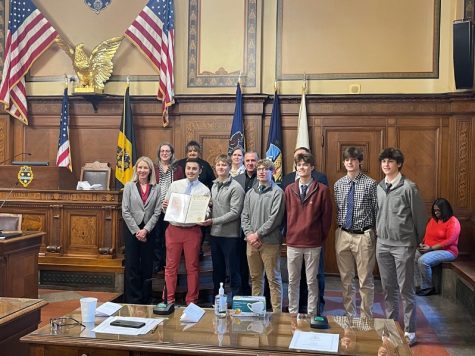Billionaires in Space: Rocket Ship tourism and its Ignorance
2021 witnessed the dawn of a new space race: one fueled by billionaires and commercial tourism.
In July 2021, billionaire Sir Richard Branson, a business magnate and founder of the Virgin Group, a multinational venture capital company, flew into space aboard his spaceship the Virgin Galactic.
Shortly after Branson, billionaire Amazon CEO Jeff Bezos took his own tour of space, bringing along famous astronaut Wally Funk, his brother Mark Bezos, and an 18-year-old whose rich father bought him the spot in an auction.
 On Sept. 18, we witnessed another billionaire-sponsored space tourism adventure provided by SpaceX, Elon Musk’s prized aeronautics company.
On Sept. 18, we witnessed another billionaire-sponsored space tourism adventure provided by SpaceX, Elon Musk’s prized aeronautics company.
$200 million dollars were raised for the mission, labeled as a fundraiser for St. Jude’s hospital. 4 passengers were aboard the ship, including billionaire Jared Isaacmen who started the fundraising mission.
While this trip was aimed at a good cause, however, the trend of increasingly meaningless and tourism-based space trips has people concerned.
Tourism-driven space trips exacerbate the American wealth gap and are a vibrant form of modern conspicuous consumption.
The space trips provided by private companies are exclusive only to those who can pay massive amounts of money for a seat.
For instance, Branson’s Virgin Galactic rocket is selling seats worth $200,000 – $250,000. These vast amounts of money thrown up by billionaires and the rich seem wasteful to those struggling to pay bills and support their families, despite their hard work.
During the pandemic, billionaires got exponentially richer while many lost their jobs and were in financial ruin.
The modern space race appears to have no end goal in the name of technological advancement or science: it is fueled primarily by the rich’s lackadaisical disconnect with those in need of financial support and the money that they are able to waste.
The original space race saw a competition spawn out of pride, the drive for better science, and international competition (even though these factors may not benefit the country, they still possess an established meaning within the space race).
Furthermore, the first space race advanced other earthly technologies, especially in healthcare. The modern space race fails to associate with a clear goal apart from tourism and money.
Hopefully, like the old space race, the increased interest in commercialized space travel will result in some technological advancements and a better understanding of space.
But for now, the ridiculously expensive auctioneered space flights available only to the rich highlight the country’s pitiful wealth gap and a general disinterest in alleviating social problems on earth.

Joe Stern is a senior and captain of the rowing and quizbowl teams. His favorite past time activities include slamming nerds in Game Pigeon word games...














